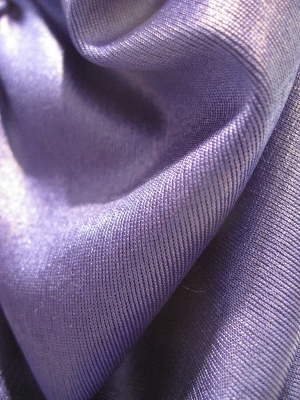Do you need a new backpack but can’t make up your mind about the best material? There are a wide variety of materials to choose from, so familiarizing yourself with their distinctions is important. The two most common materials for backpacks are nylon and polyester; however, is the choice of material really that important?
It’s a common misconception that nylon is more durable than polyester. The truth is that both nylon and polyester are good options for travel backpacks. Nylon and polyester are lightweight, tough, and more durable than other materials like cotton, plastic, or leather. However, the variations between the two materials extend beyond their tangible characteristics, and, thus, the material choice does count when it comes to backpacks.
In this article, we examine this subject in greater detail by contrasting the features of a nylon vs. polyester backpack. This article will discuss the pros and cons of each material, as well as the effects each has on the ecosystem and how to select the best one for your particular travels.
Table of Contents
What is Nylon?
Nylon is a synthetic fiber made from petroleum and contains nitrogen atoms. Nylon is first in a liquid form, and then mechanically dried to form individual fibers.
It feels smooth and softer on the surface and is most commonly used for softer clothing items like lingerie, swimsuits, and tights. It is also used for sports gear, drapes, bedding, and carpets.

What is Polyester?
Polyester is a type of synthetic fiber made from petroleum that is spun into a thread form from a chemical solution.
Polyester appears drier and rougher-looking in comparison to nylon, but it is more widely used, especially in the clothing industry. This includes a wide variety of apparel, sports gear, carpets, beddings, curtains, and some industry usage. It is cheaper to produce than nylon and hence is available in larger quantities.

Main Characteristics of Nylon Backpacks
Nylon Backpacks are perfect for traveling due to their various advantages like durability, water resistance, stretchability, etc. It is ideal for traveling frequently whether for leisure or business as a carry on backpack.
Keep reading further as we share the pros and cons of choosing nylon backpacks for traveling:
Advantages of Nylon Backpacks
Nylon has high-elasticity
Being a highly stretchable material, nylon backpacks are great for accommodating large-sized luggage without the risk of getting damaged. You can stuff your nylon backpacks however you want, as the material is flexible enough to adjust to any shape without a hassle. Once you take out the luggage, your nylon backpack will return to its original form without wrinkles or creases, and the material remains tough.
Nylon is soft and smooth
Nylon is naturally smooth and soft, giving your nylon backpacks a premium and luxurious feel. So, if you are looking for an aesthetically-pleasing backpack, nylon is an excellent choice.
Nylon is impermeable
Water spills are common when you’re traveling. However, if you have a nylon backpack, you need not worry as the material has low absorbency. Even if you end up spilling any liquid on your nylon backpack, it will roll off the surface, and your backpack will dry within a few minutes, saving you the hassle of dealing with water-drenched and damaged items. It is almost waterproof to a certain degree, making it an excellent travel essential. Many backpack shoulder straps are made of a combination of nylon with foam webbing so that they don’t absorb water in wet weather, which can cause them to chafe against your shoulders.
Nylon is easily washable
One of the best features of a nylon backpack is that you can easily clean and wash it if it gets dirty and worn out from your travels. The material has a smooth surface, which is not susceptible to dirt and grime. You can easily clean or wash your nylon backpacks with any cleaning sponge, brush, or wipe and make them appear as good as new. Do not use hot water while washing or cleaning nylon, as heat can cause wrinkling of the material.
Nylon cannot get infested with mildew
When exposed to extreme sunlight and humidity, mildew can quickly grow on various materials except for nylon. Being 100% resistant to fungi, mildew, and mold, nylon backpacks are an excellent choice for long travels. Even insects like moths and alkali cannot infest or pollute it.
Nylon is tough and long-lasting
Your nylon backpack tends to last you a lifetime due to its strength and durability. The material is lightweight but sturdy, capable of carrying heavy and bulky items without a hassle. Another valuable advantage is that a nylon backpack can endure harsh weather conditions. All it needs is a quick wipe or a round in the washing machine; your backpack will be as good as new.

Disadvantages of Nylon Backpacks
Nylon absorbs heat
Nylon fabrics can easily absorb heat so if you are traveling with a nylon backpack in the summer season, be careful about what you store inside it. Small metallic items, appliances, and perishable food are at risk of getting ruined or damaged in the heat. Similarly, if you go hiking, a nylon backpack may make you feel pretty sweaty.
Nylon cannot be bleached
If you want to go the extra mile to clean your nylon backpack with bleach or acid, stop right there! Bleach and cleaning acids can easily damage and melt nylon, so avoid using any cleaning agent with bleach or acid, or it will damage your backpack over time.
Nylon needs to be washed alone
Washing your nylon backpack can be inconvenient as you cannot mix it with any other fabric in the washing machine. Nylon can easily absorb bright colors or lose its own color when washed with different colors. Once your nylon backpack picks up another color from the washing machine, it is difficult to get rid of it, which may ruin the look and feel of your backpack.
Main Characteristics of Polyester Backpacks
Polyester Backpacks are ideal for traveling in the rainy season as the material is water-resistant and durable.
Let’s look at the list of pros and cons of choosing polyester backpacks for traveling:
Advantages of Polyester Backpacks
Polyester is durable
A polyester backpack can last up to 10 years or more if you take good care of it. The material is highly durable and long-lasting. The backpack will retain its shape, size, and appearance even after several years. You can also easily recycle your polyester backpack without causing any damage to the environment, making it an excellent choice as a sustainable and eco-friendly product.
Polyester is water-resistant
Polyester is more water-resistant, making your polyester backpack an excellent traveling partner during the rainy season. In addition, you do not have to worry about your polyester backpacks catching any stains or growing mildew on them, as the water-resistant surface prevents that from happening. Cleaning your polyester backpacks is also convenient and easily manageable.

Polyester is thermoplastic
You can adorn your polyester backpack with iron-on stickers as the material is thermoplastic.
Polyester is long-lasting
You do not have to worry about your polyester backpacks getting stained or picking up other colors as it does not mix with dye during washing. It is more abrasion-resistant than nylon so there’s less likelihood of picking up tears if you brush the surface against something sharp, which makes polyester a good choice for hiking backpacks or an anti-theft backpack. Moreover, your polyester backpack will retain its original shape and size even after several washes. Even the color does not fade quickly, so you can enjoy carrying a polyester backpack that looks as good as new for years.
Disadvantages of Polyester Backpacks
Polyester is highly flammable
You must protect your polyester backpacks from any open flames or fire as it is highly flammable. Even the slightest exposure can burn it, destroying all your belongings.
Polyester can catch grease and oil stains
Despite being stain-resistant, when it comes to oil or grease, that’s where polyester falls short. So, while you can quickly get rid of any other stains, oil and petroleum get absorbed by polyester, and it’s a nuisance to remove them from the surface.
Nylon Vs. Polyester Backpack: A Head-to-Head Comparison
Here is a head-to-head comparison chart that will help you decide which material out of nylon and polyester performs better in terms of durability, water resistance, heat resistance, shrinkage, stretchability, etc.
[table id=31 /]
FAQs
Yes, nylon backpacks are durable and sturdy. Nylon is a natural stretchable fabric, which means that you can fit anything inside your nylon backpack, and it will still retain its original shape and form. Nylon is also mildew resistant, so it is durable, long-lasting, and able to endure harsh weather conditions.
Nylon backpacks are water-resistant, but you cannot call them completely waterproof. The fabric is quick-drying and absorbs water slower, but that does not mean that it is 100% waterproof.
Yes. Polyester backpacks are durable, especially compared to nylon. The material is long-lasting, mildew-resistant, and more water-resistant than nylon. Polyester backpacks can last you anywhere from 5 to 10 years or more.
Yes. Polyester backpacks are water-resistant but not completely waterproof as the fabric is hydrophobic and dries off more quickly than nylon. Polyester’s water retention ratio is 0.4, while nylon’s is 4 – proof that polyester is more waterproof.
The Final Verdict
You should consider your own preferences and requirements when deciding between a nylon and polyester backpack. Each material has benefits and drawbacks that must be considered. In comparison to polyester, nylon has superior strength and longevity. Polyester, on the other hand, is typically cheaper than nylon, simpler to clean, more water resistant, and more colorfast. Whether you go with a nylon vs. polyester backpack depends on your needs and preferences. Nylon may be the superior option if you need a durable and long-lasting backpack. Polyester could be the best selection if you’re trying to save money and time on upkeep.

